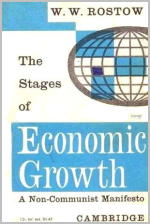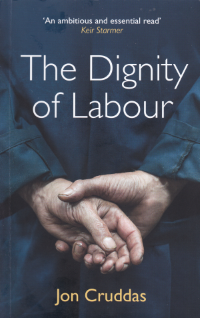Real Incomes Policy
RIP has two macroeconomic policy instruments:
The PPR is a measure of progress of each economic unit in lowering the ratio between changes in output prices against variations in input costs. The PPL is a rebate on a basic levy according to the PPR values achieved. Economic units can manage their affairs to minimize the levy even to zero. In this way the macroeconomic policy is coordinated by the participatory development of companies and their work forces and not by largely arbitrary interest and debt targets. RIP bases policy impact and success on the knowledge and calculations made by the economic actors thereby solving the calculation and knowledge problem in an operational structure that more closely approximates participatory constitutional economics. 
|
|
|
The fundamental problem facing our economy has been that there has seldom been a period when company owners and work forces collaborated to improve performance on the basis of sharing the benefits of this collaboration in terms of paying compensatory wages. This statement needs to be qualified. In this context compensatory wages are not be confused with "minimum" or "living incomes" but is rather a question of the contribution of labour to real output. Compensation in this case relates to levels of pay (wages) linked directly to the contribution of labour to the levels of resulting productivity, and profits.
The only more recent period where one might consider there to have been an arm's length collaboration was during the period 1945 through to 1965 and slightly beyond where there was an industrial policy overseen by business, the labour unions and government (tri-part system) which was maintained by both the Labour and Conservative governments. Before that period, any decline in the balance of payments was "corrected" through a shake-down of wages imposed by monetary policy. The labour force was the sponge that absorbed the inefficiencies of industry as a result of imposed reductions in real wages.
The success of the period 1945 through 1965 was marked by a period of investment, rising productivity, rising real incomes of wage-earners and a decline in income disparity. However, coming off the Gold standard and facing the international petroleum prices in the 1970s resulted in Denis Healey reverting to monetarist principles in 1975 by not continuing the approach of an industrial and wages policy. Remarkably Healey opted to intensify a policy that reverted back to the pre-war shaking down of labour pay to try and sort out the balance of payments issue to satisfy the IMF (See,
Witteveen's folly). This was a serious mistake, pointed out at the time by Nicholas Kaldor, since by allowing the industrial park to crumble, Britain began to lose its competitive edge and real growth as companies began to invest overseas to secure lower labour costs and to lose tacit knowledge or supply side competence to countries largely in South East Asia and China. The impact was broad de-skilling of a large part of an British workforce and governments who did not appear to understand this policy-induced decadence.

A good deal of this momentum was the result of academic economists, having analysed how industrial economies developed, created a model of the transition from agricultural, industrial through to services activities as being the inevitable structural move of all economies. The serious mistake made was to imagine that the more quickly economies transitioned to a service economy the faster would be economic growth. This error overlooked the essential relationship between industry and manufacturing and services.
 This book by Jon Cruddas describes the sequence of events related to the post-Healey policies of both Labour and Conservative governments hollowing out of Britain's industrial foundation. Cruddas uses the plight of the Dagenham Motor Works as a case study.
This book also describes the associated degradation of the social and economic conditions in the community surrounding Dagenhamas a result of government neglect. |
It is necessary to maintain a significant industrial and manufacturing activity to sustain services because it is in making things where learning and the shaping of essential innovations take place as a source for real growth. The mistake made by economists and politicians was to introduce economic policies that in national terms reduced the industrial component. Nicholas Kaldor made these points as far back as 1966 but was largely ignored and the results were that financialization dominated economic thinking and eventually macroeconomic policy. Just as in the 1960s awareness of the problem of the limitations of the world's carrying capacity was a growing issue, the new monetarism caused a pattern of economic growth in Britain where the environment was ignored just as the sources of real economic growth were destroyed. This is why, today most of our essential goods and imported and we remain non-self-sufficient in food production.
The article
"RIP and real wages" explains why the interests of asset holders and wage-earners are diametrically opposed. This provides an explanation as to why during the period of hyper-financialization, 1975-2008, labour unions's main objective was raising worker's wages in nominal terms. This resulted in a highly contentious relations between labour unions, companies and government. Because of the national accounting norms and the assignment of labour to the costs section of corporate accounts, corporate taxation provides a strong "justification" to control wage levels or to substitute labour through automation or by simply investing offshore and abandon sections of the national labour force. In essence this is a version of the pre-war or post-Healey shake-down of wages for the sake of company profitability.
The challenge is to introduce a macroeconomic policy that enables companies to operate profitably while paying fair and compensatory wages. The old name for this was "productivity agreements" but, of course, for this to have any impact there needs to be a growth in the proportion of the economy that is involved in industry and manufacturing. There is therefore a fundamental need for sector growth and this is an
economic development issue. Therefore this country requires a macroeconomic policy that provides incentives for a closer collaboration between work forces and company management. At the moment the Bank of England's quantitative easing experiment has been a case study on how to accelerate the hollowing out of the supply side productive sector. Monetarism has wrought enough destruction on the real economy to justify its replacement with an approach that is geared to growth in real output on the basis of more-for-less as an essential criterion to reduce the consumption of natural resources and greenhouse gas emissions. This requires a policy where the role of a labour force in learning, adapting and contributing with their tacit knowledge (accumulating competence) to a transition of changes in technologies and techniques become an essential component in real growth. For this it is essential for the required investments to be linked to the resulting productivity measured in terms of movements in unit prices and the resulting real incomes of companies, consumers and the workforce. Unless macroeconomic policies support this requirement it will be difficult for labour representation to realize the significant contribution they can make to this process of national recovery.
To date, the only policy that dispels the calculation and knowledge problem by being adaptable to the conditions of all work groups and economic units, is Real Incomes Policy. Such a policy makes the necessary economic development transitions possible in an environment where labour representatives, unions, cooperatives and mutuals can thrive to drive down income disparity and raise real incomes while protecting the environment. Until this type of policy is introduced the current, now conventional macroeconomic policies and Bank of England's lack of accountability, will continue to weaken the future economic prospects of this nation.
One nation unionismOne of the peculiar characteristics of unions has been their historic approach to dealing with the captains of industry or ministers has permitted their attention to be drawn away from the bulk of the manufacturing sector in the form of SMEs or even the self-employed. Labour representation need to be transformed into a one nation unionism where they build up expertise in systems engineering economics applicable to any production situation and to set about representing the interests of all British workers, contributing to training and the dissemination of useful information. In this context, labour, companies and government have a major potential mutual benefit in the establishment of a national industrial extension system responsible for disseminating information on the state-of-the-art technologies and techniques that are operational and that are economically, financially vaible and sustainable.
1 Hector McNeill is director of SEEL-Systems Engineering Economics Lab
All content on this site is subject to Copyright
All copyright is held by © Hector Wetherell McNeill (1975-2021) unless otherwise indicated